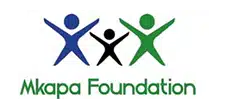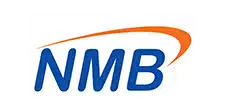- Whitesand Road 86, Keni Close St. Block No: KUN/KIL/83, Dar-es-salaam, Tanzania.
- nacopha@nacopha.or.tz
- +255 745 111 242
- Dar-es-salaam, Tanzania.
- nacopha@nacopha.or.tz
- +255 745 111 242
- About Nacopha
Learn about NACOPHA’s mission, vision, history, coverage, Our structure and the core values that guide our work in supporting people living with HIV in Tanzania.
Did you know?
NACOPHA has influenced national health policies to improve access to HIV treatment for over 100,000 individuals.
- What we do
- Discover our key programs and initiatives focused on health empowerment, education, women’s rights, and economic support for people living with HIV.
Data Systems

Did you know?
NACOPHA has conducted over 500 educational workshops, reaching more than 50,000 youths across Tanzania.
- News and Stories
Stay updated with the latest news, events, and developments from NACOPHA and the wider HIV advocacy community.
Highlights.!!
Over 500 Students Empowered in HIV Literacy

In line with the directives of Her Excellency President Dr. Samia Suluhu Hassan, NACOPHA, through the USAID Hebu Tuyajenge Project, in collaboration with the universities of SUA, Mzumbe etc , .....
Kilele cha Mdahalo wa Kitaifa wa Mwitikio wa UKIMWI

Dodoma, Tanzania Tarehe 7 Septemba 2023, mdahalo wa kitaifa ulioandaliwa na Baraza la Taifa la Watu Wanaoishi na VVU Tanzania (NACOPHA) kwa ushirikiano na Tume ya Kudhibiti UKIMWI Tanzania (TACAIDS) .....
- Resources

Browse our extensive library of publications, guides, and educational materials to learn more about HIV prevention, treatment, and care.
Download our latest educational guides to stay informed about the best practices in HIV prevention and care.
- Get Involved
- Contact us
Contact Us
Reach to us for problem
-
Whitesand Road 86 Keni Close/Kilongawima St Block No. KUN/KIL/83,
P.O.Box 55811, Kinondoni,
Dar-es-salaam,
Tanzania. -
+255 745 111 242
-
info@nacopha.or.tz
-
9am to 6pm as per East Africa Time (GMT+3)
Send us a quick message
Reach to us for problem
-








